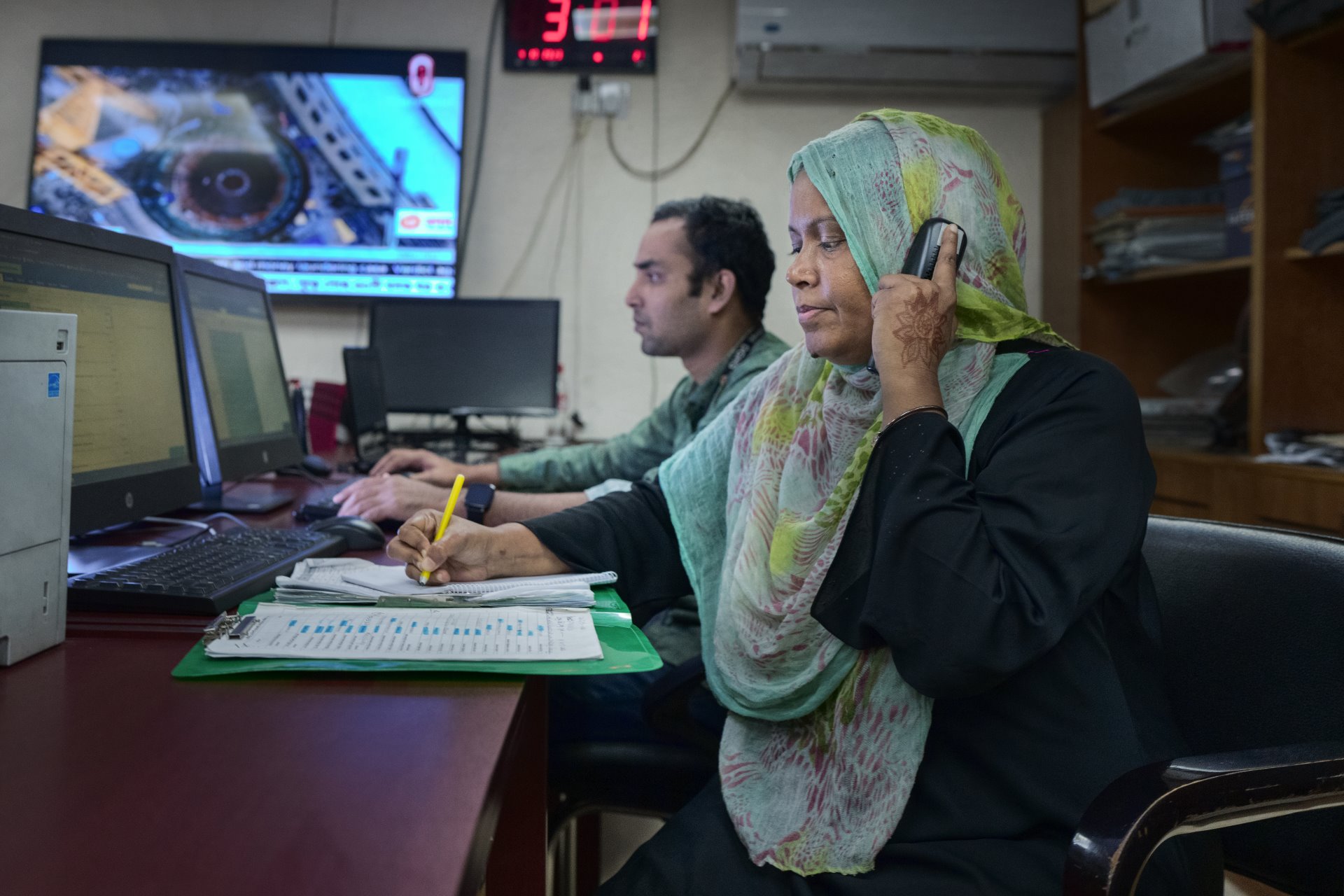Over 120 countries reported cases of mpox between January 2022 to October 2024. This multi-country outbreak of mpox has impacted all WHO regions. In September 2024, public health professionals came together to share lessons learned and best practices gathered over the last two years on the use of digital and analytic tools for mpox. The practice of information sharing has proven to be critical in promoting collaboration and improving both processes and outcomes. The health professionals were brought together at a webinar organized by the GOARN Operational Support Team, the World Health Organization (WHO) Hub for Pandemic and Epidemic Intelligence and the mpox Incident Management Support Team.
The mpox outbreak was declared a public health emergency of international concern (PHEIC) by WHO in 2022. Though the PHEIC status was lifted in 2023 following a sustained drop in the number of cases globally, in recent months, the number of mpox cases began to increase. This upsurge of Mpox cases in the Democratic Republic of the Congo (DRC) and a growing number of countries in Africa led WHO Director-General Dr Tedros Adhanom Ghebreyesus to declare a PHEIC in August 2024, marking the second such declaration in two years concerning this disease.
Following the PHEIC declared in 2022, numerous countries and organizations employed innovative approaches and tools to support the outbreak response. These technologies have facilitated and supported the response, and valuable insights have been gained throughout this process.
Given the increasing number of reported cases and geographic spread in recent months, it was important to reflect on the experiences and to share insights and lessons learned to optimize future uses of these tools in outbreak responses.
 Data analysis experts in the Directorate General of Health Services control room [Bangladesh]
Data analysis experts in the Directorate General of Health Services control room [Bangladesh]
WHO / Fabeha Monir
Use of Go.Data to support the mpox response: Brazil and Chile use cases
The Ministry of Health in Chile and the WHO/Pan American Health Organization (PAHO) in Brazil shared their experiences in responding to an mpox outbreak with the support of Go.Data. Both countries used this tool to strengthen their outbreak investigation and contact tracing efforts.
Go.Data is an open-source outbreak investigation tool developed by WHO in collaboration with Global Outbreak Alert and Response Network (GOARN) partners. The tool is designed to support field responders with more integrated data sets and standardization to compare across different areas or events. It allows for real-time analyses to inform field operations, and a series of features to streamline and enhance contact tracing activities.
The Ministry of Health in Chile highlighted the use of Go.Data in case investigations, follow-up of identified contacts, the identification of clusters, and the identification and creation of relationships/events between cases and contacts. Its flexibility made it easy to create real-time investigation forms, dashboards and detailed outbreak reports, which helped identify the risk profile of the emerging disease and take timely public health measures to control the outbreak.
Brazil is one of the countries with a high uptake of the Go.Data tool. During the outbreak of mpox in 2022, Go.Data was effectively utilized in three affected states to support the outbreak response. The tool facilitated real-time access to data, enabling timely decision-making. Its user-friendly interface ensured that individuals with minimal technical expertise could use the tool effectively. Furthermore, the software's customization capabilities for contact follow-ups allowed for personalized tracking and management of contacts.
Highlighting mpox analytical tools
The WHO Hub for Pandemic and Epidemic Intelligence, the London School of Hygiene &Tropical Medicine, and the WHO Epi Parameters Community Co-lead presented key analytical tools that could be used to support the mpox response.
Dr Julia Fitzner, Unit Head of insights & analytics at the WHO Hub for Pandemic and Epidemic Intelligence, discussed the Collaboratory initiative, a laboratory dedicated to pandemic and epidemic intelligence. She emphasized that the Collaboratory has been instrumental in connecting, building, and strengthening communities in various fields, including mpox and influenza. Dr Fitzner encouraged the pandemic and epidemic intelligence community to engage with this initiative and consider establishing new communities of practice within it. She highlighted the significance of the global epidemiological parameter repository as a valuable public resource, emphasizing its role in providing crucial information to inform public health interventions for mpox and other diseases aimed at mitigating their spread and minimizing their impact on affected populations.
Professor Sebastian Funk from the London School of Hygiene & Tropical Medicine discussed the use of software tools for addressing common analytics tasks with reference to the 2024 mpox outbreak. He highlighted the efforts of the WHO-led global collaborative working group, dedicated to developing a global repository of epidemiological parameters. This initiative aims to provide essential data to inform mathematical models and public health responses.
Dr Chloe Rice, consultant at the World Health Organization working on the Epi Parameter Community of Practice,presented crucial epidemiological parameters for modelling and analysis. She highlighted the development of a Global Repository of Epidemiological Parameters (GREP) as part of the Collaboratory initiative, the Epi Parameter Community of Practice. The GREP will encompass vital epidemiological parameters, including reproduction numbers and human delay variables such as the serial interval. It will be publicly accessible to facilitate modelling, analysis and decision-making processes.
Continuing the dialogue: access further resources and insights
The webinar concluded with an invitation to continue participating in ongoing discussions and to remain informed about the digital and analytical tools that can support the ongoing mpox response. Participants were encouraged to join in the:
- the Go.Data community of practice: individuals interested in learning and sharing their experiences can complete a brief form to engage in discussions in the GOARN Knowledge Platform. For further inquiries, please reach out to godata@who.int; and
- the Collaboratory: those interested in establishing new communities of practice may initiate the process by sending an email to collaboratory@who.int.
